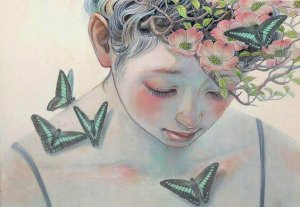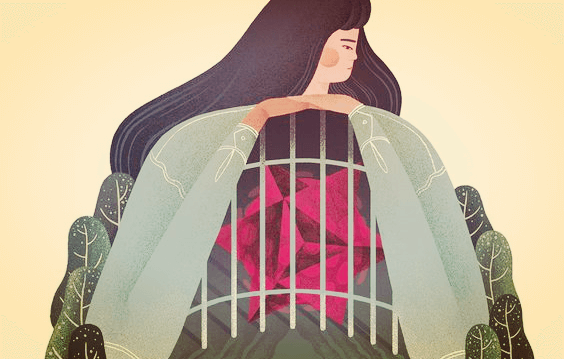Protect Yourself from Toxicity by Cultivating Emotional Responsibility


Written and verified by the psychologist Sergio De Dios González
In recent years the concept of toxicity has gotten popular, especially in the context of relationships. We are surrounded by toxic people hurting us and robbing our positivity, whether in the family, relationships, at work or in friendships.
Psychologist and writer Bernardo Stamateas defines toxic people as those who have behaviors that enhance our weaknesses, fill us with burdens and frustrations and try to bring down our self-esteem, either consciously or unconsciously.
But what happens when WE are the toxic people? Sometimes we demonstrate certain behaviors that hurt others, and we have no clue we’re doing it. Let’s dig deeper…
Some signs of toxicity
Nobody likes to think they’re hurting people. It’s easier to blame others and point out what is wrong. But the truth is that everyone at some point in their lives is toxic.
Victimizing, selfish and manipulative behaviors where we try try to convince people to do what we want — this is toxic. When we can’t be happy for other people’s successes, when we tear down their dreams and values — this is toxic, too
Still doesn’t sound like you? Then think about the times when you put your foot down out of pure pride, knowing you made a mistake and hurt someone, but not wanting to admit it. Yes, this is toxicity.
Then all of a sudden we’re sucked into a downward spiral. It starts when we try to control others, manipulate them, or get attention. It turns out that toxicity is just hovering around us waiting for a chance to jump in.
Maybe nobody ever told us that there are different degrees of toxicity and it’s not as simple as labeling someone as toxic.
When we act like this, we actually are projecting our negative perspective, the holes we have inside, and our unresolved conflicts.
The heavy chains of fear, emptiness or guilt weigh us down. Our lack of emotional responsibility and empathy pull us down even further.
Being toxic to ourselves
We’re not just toxic towards others — we also do it to ourselves. We can really be our own worst enemies. The way we treat each other and the way we talk to ourselves influences us. It has the power to imprison us.
If we judge ourselves harshly, always telling ourselves we’re not enough, we’re treating ourselves in a toxic way. We’re undermining our self-esteem and undermining our relationships with conflicting behaviors.
Let’s not tear ourselves down or blame ourselves when we make a mistake. A mistake does not merit it. On the other hand, if we’re kind to ourselves, we will be able to see what happened from another perspective and then try out new strategies. Indirectly, our relationships will improve.
Accepting our toxicity in order to change
Accepting that we are toxic will take a lot of honesty and emotional responsibility, but it’s the first step to change. To do it, we’ll have to really pay attention to how we act in order to detect the toxic dynamics. Then we can see what emotional problems we are trying to cover up.

Maybe we’ll see that we control others because we’re insecure. Maybe our negativity comes from being overly critical and we need to open ourselves to other, more positive points of view. Could it be that we manipulate people because we need to learn how to recognize, express, and manage our emotions?
The important thing is to accept that we have problematic behaviors. We must take responsibility if we want to see what’s really going on. It’s not about pointing fingers.
5 tips for learning to live in a responsible way
To prevent toxicity from gaining ground in our lives, the key is to incorporate emotional responsibility into our lives. It’s a sign of growth to take responsibility for our lives and accept that we have power over how we feel. But how do we do it?
- Practice emotional intelligence. To be responsible for what we feel, first we need to understand our own emotions and those of others. To do this, learn to set limits, surround yourself with positive people, exercise self-control, be empathetic and look for the positive. Toxicity will have a hard time getting in after that.
- Avoid holding others responsible. The emotions we feel belong to us. Focusing on them is fundamental. Because it’s not about assigning blame, but about learning to manage it.
- Take charge of what we feel. Assuming the full weight of our emotions is hard but we can do it: change “You make me angry” or “You make me feel terrible” to “I’m angry at what you have done or what happened. I am the one who feels angry at what happened and I’m going to handle it instead of avoiding it or rejecting it. ” This is you owning what you feel.
- Channel our emotions. Releasing anger, sadness or fear and accepting how it affects us can help us learn from it.
- Choose our attitude. We cannot change our circumstances or the people around us sometimes, but we can change our attitude. For this, focusing inward and choosing how we’re going to see things is essential. Let’s not forget that we have the final say.

As you can see, toxicity is a tool we use to cover up our wounds and the best way to prevent it is by developing emotional responsibility. Life is not simple and each one of us has a whole history of dealing with pain and suffering, sometimes in a healthy way and sometimes in a toxic way.
The solution is to first become aware of it, and then turn our toxicity into health.
In recent years the concept of toxicity has gotten popular, especially in the context of relationships. We are surrounded by toxic people hurting us and robbing our positivity, whether in the family, relationships, at work or in friendships.
Psychologist and writer Bernardo Stamateas defines toxic people as those who have behaviors that enhance our weaknesses, fill us with burdens and frustrations and try to bring down our self-esteem, either consciously or unconsciously.
But what happens when WE are the toxic people? Sometimes we demonstrate certain behaviors that hurt others, and we have no clue we’re doing it. Let’s dig deeper…
Some signs of toxicity
Nobody likes to think they’re hurting people. It’s easier to blame others and point out what is wrong. But the truth is that everyone at some point in their lives is toxic.
Victimizing, selfish and manipulative behaviors where we try try to convince people to do what we want — this is toxic. When we can’t be happy for other people’s successes, when we tear down their dreams and values — this is toxic, too
Still doesn’t sound like you? Then think about the times when you put your foot down out of pure pride, knowing you made a mistake and hurt someone, but not wanting to admit it. Yes, this is toxicity.
Then all of a sudden we’re sucked into a downward spiral. It starts when we try to control others, manipulate them, or get attention. It turns out that toxicity is just hovering around us waiting for a chance to jump in.
Maybe nobody ever told us that there are different degrees of toxicity and it’s not as simple as labeling someone as toxic.
When we act like this, we actually are projecting our negative perspective, the holes we have inside, and our unresolved conflicts.
The heavy chains of fear, emptiness or guilt weigh us down. Our lack of emotional responsibility and empathy pull us down even further.
Being toxic to ourselves
We’re not just toxic towards others — we also do it to ourselves. We can really be our own worst enemies. The way we treat each other and the way we talk to ourselves influences us. It has the power to imprison us.
If we judge ourselves harshly, always telling ourselves we’re not enough, we’re treating ourselves in a toxic way. We’re undermining our self-esteem and undermining our relationships with conflicting behaviors.
Let’s not tear ourselves down or blame ourselves when we make a mistake. A mistake does not merit it. On the other hand, if we’re kind to ourselves, we will be able to see what happened from another perspective and then try out new strategies. Indirectly, our relationships will improve.
Accepting our toxicity in order to change
Accepting that we are toxic will take a lot of honesty and emotional responsibility, but it’s the first step to change. To do it, we’ll have to really pay attention to how we act in order to detect the toxic dynamics. Then we can see what emotional problems we are trying to cover up.

Maybe we’ll see that we control others because we’re insecure. Maybe our negativity comes from being overly critical and we need to open ourselves to other, more positive points of view. Could it be that we manipulate people because we need to learn how to recognize, express, and manage our emotions?
The important thing is to accept that we have problematic behaviors. We must take responsibility if we want to see what’s really going on. It’s not about pointing fingers.
5 tips for learning to live in a responsible way
To prevent toxicity from gaining ground in our lives, the key is to incorporate emotional responsibility into our lives. It’s a sign of growth to take responsibility for our lives and accept that we have power over how we feel. But how do we do it?
- Practice emotional intelligence. To be responsible for what we feel, first we need to understand our own emotions and those of others. To do this, learn to set limits, surround yourself with positive people, exercise self-control, be empathetic and look for the positive. Toxicity will have a hard time getting in after that.
- Avoid holding others responsible. The emotions we feel belong to us. Focusing on them is fundamental. Because it’s not about assigning blame, but about learning to manage it.
- Take charge of what we feel. Assuming the full weight of our emotions is hard but we can do it: change “You make me angry” or “You make me feel terrible” to “I’m angry at what you have done or what happened. I am the one who feels angry at what happened and I’m going to handle it instead of avoiding it or rejecting it. ” This is you owning what you feel.
- Channel our emotions. Releasing anger, sadness or fear and accepting how it affects us can help us learn from it.
- Choose our attitude. We cannot change our circumstances or the people around us sometimes, but we can change our attitude. For this, focusing inward and choosing how we’re going to see things is essential. Let’s not forget that we have the final say.

As you can see, toxicity is a tool we use to cover up our wounds and the best way to prevent it is by developing emotional responsibility. Life is not simple and each one of us has a whole history of dealing with pain and suffering, sometimes in a healthy way and sometimes in a toxic way.
The solution is to first become aware of it, and then turn our toxicity into health.
This text is provided for informational purposes only and does not replace consultation with a professional. If in doubt, consult your specialist.







